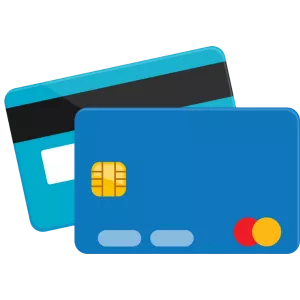
Big Cartel doesn’t quite come close to Shopify’s size in terms of merchant adoption. However, the number of Big Cartel stores increased by 48% between the end of 2022 and the end of 2023, making it more of a relevant competitor to Shopify [1] Store Leads. “The State of Big Cartel in 2024” Accessed on April 9, 2024. While both platforms are popular eCommerce solutions for users to run an online store, they cater to different business types and sizes. So, which is best for you when it comes to Big Cartel versus Shopify?
Today, we’ll break down both options’ features, pricing structure, and key characteristics to help you decide which platform is best fit for your brand.
Shopify vs Big Cartel: A Quick Overview
While both Big Cartel and Shopify are easy-to-use eCommerce platforms that don’t require coding knowledge, there are some key differences to consider when choosing between the two.
Big Cartel
Big Cartel is an eCommerce platform designed for smaller stores and independent creators such as artists, musicians, and makers. It provides a user-friendly interface that allows you to sell products directly to consumers. Notable for its simplicity and ease of use, the platform is ideal for those who don’t have extensive technical experience.
Shopify
Shopify caters to various businesses, from startups to large enterprises, and is known for its scalability and reliability. It is a comprehensive yet user-friendly platform, offering broad customization through themes and apps. Merchants value Shopify for its 24/7 customer support and the ability to create a personalized, professional online shopping experience for customers.
Big Cartel vs Shopify: Pricing & Payments
When comparing Big Cartel and Shopify platform costs, consider monthly subscription fees, transaction fees, and add-on services. In addition, compare the features included with each plan to get the best value for your money.
Big Cartel Pricing Plans
Big Cartel appeals to users who prefer straightforward setups with relatively few products to sell. The platform offers various pricing plans, including a free option, making it accessible for beginners or those on a budget.
There are three pricing plans to choose from based on your list of products. All plans include free customizable templates, real-time sales data, multiple payment options, and the ability to sell online and in person. You can also set up product variant groups and automated sales tax.
In addition to these features, here’s what each plan entails:
Gold Plan
- Free
- Maximum of five product listings
- One image allowed for each product
Platinum Plan
- $10 monthly fee
- Maximum of 50 product listings
- Five images are allowed for each product
- Custom domain
- Enables code editing for extended customization
- Google Analytics integration
- Inventory tracking
- Discount and promotion capabilities
- Bulk editing
- Shipment tracking
Diamond Plan
- $20 monthly fee
- List up to 500 products
- Five images per product listing
- Includes all Platinum features, plus Facebook reporting and priority customer support
Note that Big Cartel does not have its own payment processor but facilitates processing with Stripe or PayPal. Merchants can also use PayPal’s “buy now, pay later” option, Google Pay, and Apple Pay, as well as Stripe mobile terminal for in-person payments. Big Cartel does not charge payment processing fees. You will only be subject to the per-transaction fees the chosen payment processor charges.
For online debit and credit cards, Apple Pay, Google Pay, and Click to Pay, Stripe charges 2.9% + $0.30 per transaction. Payments through the Stripe mobile terminal incur a 2.7% + $0.05 fee per transaction.
PayPal charges between 2.99% and 3.49% (with an additional $0.30) per online transaction. However, pricing is not straightforward as it varies by region, currency, and other factors.
Shopify Pricing Plans
Although Shopify’s pricing is competitive, it might not be the most affordable choice for all businesses. Monthly subscriptions, apps, premium themes, and additional fees can add up if you require extended features.
Shopify provides a range of pricing plans suited to various business needs and sizes. Start-ups can begin with a more affordable plan and upgrade as they expand. Choosing an annual payment offers a 25% discount compared to monthly billing. All plans include customizable templates, ten inventory locations, and the ability to sell online, in-person, and on social media channels. Prices may differ based on your business location.
Shopify supports integration with numerous payment gateways; however, it also features its own proprietary processor, Shopify Payments. This lets you take customer payments directly through your store without external payment processing integrations.
Shopify Payments accepts various payment methods, including all major credit cards, Google Pay, and Apple Pay. While you still pay a per-transaction fee, you are exempt from the extra fees Shopify imposes for using alternative payment gateways. Transaction fees decrease with higher-tier Shopify plans, and payout schedules vary by region and other criteria.
Shopify eCommerce plans include:
Basic Plan
- $25 per month
- Two staff access accounts
- Basic sales reports
- Online per transaction fee: 2.9% + $0.30
- In-person per transaction fee: 2.7%
- Additional per transaction fee for non-Shopify Payments: 2%
Shopify Plan
- $65 per month
- Five staff access accounts
- Professional sales reports
- Online per transaction fee: 2.6% + $0.30
- In-person per transaction fee: 2.5%
- Additional per transaction fee for non-Shopify Payments: 1%
Advanced Plan
- $399 per month
- 15 staff access accounts
- Custom report builder
- Third-party calculated shipping rates
- Online per transaction fee: 2.4% + $0.30
- In-person per transaction fee: 2.4%
- Additional per transaction fee for non-Shopify Payments: 0.5%

Shopify Plus
Shopify also offers an enterprise-level plan, Shopify Plus. Transaction fees vary based on credit card sales volume. The package starts at $2000 per month and offers a comprehensive suite of features, including everything from omnichannel commerce to B2B eCommerce capabilities.
Shopify vs Big Cartel: Site Builder & Maintenance Tools
When choosing the eCommerce platform that best suits your business, it’s essential to consider the tools available to build and customize your site.

Design
Shopify boasts a diverse range of customizable themes that are modern and aesthetically appealing. The themes are designed to cater to various industries and can be easily modified to match a brand’s identity without extensive coding.
Shopify’s design capabilities also extend to mobile optimization, ensuring that online stores look and function well on devices of all sizes. Users have access to a rich library of themes—but remember that many of them come at an extra cost.
While offering clean and visually pleasing free themes, Big Cartel provides a more limited selection. The platform is designed for artists, photographers, and small-scale creators, focusing on simplicity and ease of use.
While Big Cartel themes are also mobile-optimized, they do not offer the same level of customization as Shopify. Design options are sufficient for straightforward, small-scale stores, but if you want to make your store truly unique by editing your own images, you may find the platform too limiting.

SEO and Content Tools
Shopify is known for robust SEO features and content tools. It offers many options to help users optimize their online store for search engines, including customizable title tags, meta descriptions, and URLs. Shopify also supports blogging, which is a key component of an efficient content marketing strategy. The blogging platform allows for tagging, categorizing, and scheduling posts, contributing to better search engine visibility.
Additionally, Shopify provides access to many SEO-focused apps in its App Store, enabling further optimization and analysis to help store owners rank higher in search results.
Big Cartel provides a more basic set of SEO tools that are easier to use but offer less depth. While you can edit title tags and meta descriptions, no built-in blogging feature exists. This means you need to integrate an external blog if you want to leverage content marketing for SEO. While Big Cartel covers the essentials, the platform’s simplicity means it lacks some advanced SEO features.
Shopify offers a more comprehensive toolset to drive organic traffic for businesses where SEO and content creation are integral to the marketing strategy. Big Cartel may be sufficient for those who need just the basic tools and have a more straightforward approach to SEO.

Security
Hosted platforms such as Big Cartel and Shopify offer a key benefit: the companies maintain the platform’s security for you. Both Big Cartel and Shopify provide SSL security, which is one less thing for you to worry about.
Big Cartel’s security is suitable for the size and scope of the businesses it typically hosts, which are often smaller creative shops. However, since it has no payment gateway, it is not necessarily PCI-compliant.
The Payment Card Industry Data Security Standard (PCI DSS) is a set of requirements to guarantee that businesses securely handle credit card data. Since Big Cartel processes payments through external gateways like Stripe and PayPal, you must ensure that your payment processor adheres to PCI compliance.
Since Shopify hosts its own payment gateway, it is a Level 1 PCI DSS-compliant service provider with the highest level of compliance available. The platform also provides automatic security updates and 24/7 monitoring for any suspicious activity.
Shopify Payments offers fraud analysis features that help merchants identify potentially fraudulent transactions, reducing the risk of chargebacks and financial loss.

App Integrations
App integrations and add-ons can significantly help you improve store features, functionality, and customization. However, too many features can also complicate store maintenance and ease of use.
Shopify’s App Store includes various applications covering marketing, SEO, inventory management, accounting, customer service, and more. Whether a business needs advanced analytics, drop shipping solutions, or customer loyalty programs, there’s likely an app in Shopify’s ecosystem that fits the need. Additionally, Shopify’s larger user base and popularity means that third-party developers are more likely to create and regularly update apps for this platform.
Big Cartel, on the other hand, has a more limited selection of apps and integrations. This is partly due to its focus on being a simpler platform aimed at smaller, independent creators. While Big Cartel does offer a selection of apps that cover basics like print-on-demand services, analytics, and marketing tools, its offerings aren’t as comprehensive. However, for smaller shops that only need essential integrations and prefer an easy-to-manage platform, Big Cartel’s streamlined approach may suffice.
Big Cartel vs Shopify: Sales Features
When weighing Big Cartel against Shopify, the tools available to transform clicks into customers are somewhat different. Both platforms allow you to simplify and streamline operations, but you’ll need to be clear on what your store requires to ensure you choose the best option for you.

Inventory and Product Management Features
Shopify provides an expansive set of inventory management tools suitable for both small and large-scale operations. Features like bulk product imports, inventory tracking across multiple locations, and integration with various third-party logistics services make complex inventory tracking easy. It also offers detailed product organization and the ability to sell across multiple channels seamlessly.
Big Cartel offers automatic inventory tracking with its paid plans. Sold-out items are flagged, products with zero stock appear red, and those with 25% remaining turn yellow on the dashboard. However, updates require accessing each product’s page individually (rather than bulk updating from a central list), which can be time-consuming.
While Big Cartel’s simplistic inventory management suits independent small-scale creatives, Shopify’s extended features cater more to sizeable online stores.

POS & Sales Channels
All Shopify plans include a mobile POS feature for in-person sales. You can accept payments using a mobile app or using a card reader connected to your mobile device. However, you must process payments through Shopify Payments to use POS Lite.
Alternatively, you can add full retail checkout capabilities with scanners and receipt printers for an additional monthly fee. Shopify’s POS system is fully integrated with its online store, syncing inventory, orders, and customer data between physical locations and online sales. Additionally, integration with platforms such as Amazon, eBay, Facebook, TikTok, and Instagram provides merchants with an array of avenues to reach customers.
Big Cartel also offers a POS solution, albeit more limited. To accept in-person payments with Big Cartel, you’ll need to set up Stripe as your payment gateway and use a Stripe card reader. The POS terminal facilitates card payments with swipe, chip, or manual entry. While Big Cartel does facilitate social selling on Instagram, its platform integration to social sales is not as extensive as Shopify’s.
For businesses looking for an all-in-one POS solution with extensive sales channel integrations, Shopify is typically the better choice, offering more versatility and scalability. Meanwhile, Big Cartel may be suitable for smaller vendors who primarily sell online and occasionally need in-person sales capabilities for markets or exhibitions.

Shipping Tools
Shopify is well-suited to businesses requiring advanced shipping capabilities, particularly those with a high volume of orders or shipping internationally. The Shopify Shipping suite grants merchants access to discounted rates with major carriers and allows for the printing of shipping labels in bulk directly from the Shopify admin.
In addition, Shopify’s advanced plan users can take advantage of automatic carrier-calculated shipping rates, simplifying the process of offering accurate shipping costs. The platform supports a variety of shipping apps and integrations, giving merchants the flexibility to tailor solutions to their specific needs.
Conversely, Big Cartel’s shipping tools are more basic but appropriately suited for its target audience. While Big Cartel doesn’t handle shipping directly, it integrates with third-party apps to help users manage shipping processes. Users can dropship merchandise with their art printed on it by integrating with either Printful or Art of Where.
Big Cartel vs Shopify: Ease of Use
Both platforms are beginner-friendly; however, ease of use is subjective, often depending on your familiarity with eCommerce platforms.
Big Cartel is celebrated for its simplicity and user-friendly interface. It is designed specifically for small businesses, focusing on the essentials without overwhelming users with too many complex features. Setting up a store on Big Cartel is straightforward, making it an attractive option for those new to selling online or with limited technical skills.
While also praised for its relatively easy-to-use interface, Shopify is a more comprehensive platform with a slightly steeper learning curve. It offers many features and customization options that take more time to work through. Nonetheless, the platform is designed with a clear and logical user dashboard and offers extensive documentation and support to help store owners navigate its features.
Big Cartel’s simplicity is likely more appealing for merchants seeking a no-frills approach to online selling. In contrast, those who want a feature-rich and scalable solution might find Shopify more suitable despite the initial learning curve.
Big Cartel or Shopify: Which Should You Choose?
When it comes to deciding between Big Cartel and Shopify, the best solution depends on the specific needs of your business.

Startups and Small Businesses
As previously mentioned, Big Cartel provides a valuable platform for creators, artists, and craftspeople to showcase their unique products to a wide audience. It’s ideal for eCommerce beginners, offering the necessary tools and support to expand an online business. Probably the biggest advantage is that it offers a free plan, which could be a valuable cost saver for new and small businesses.
However, Shopify is also a common choice for startups and small businesses since it offers a suite of brand creation tools, including business name generation, free logo design, and personalized domain registration. It streamlines product sourcing by connecting users with reputable wholesalers and drop shippers. Additionally, Shopify’s infrastructure is built to scale, meaning it can grow with the business as sales and customer bases expand.
Think about your future goals. If you plan to keep your business small and exclusive, Big Cartel is an ideal cost-effective option. If you plan to achieve significant growth, Shopify is a more suitable option that can adapt to your business needs.

Middle Market and Corporations
Shopify is the more suitable platform for corporations that are scaling or already operating at a large scale compared to Big Cartel.
Shopify plans—particularly advanced plans like Shopify Plus—are designed to handle the greater complexities of large businesses and corporations. These plans offer advanced features such as higher levels of customization, dedicated support teams, the ability to handle higher volumes of traffic and sales, more robust security features, and extensive integration capabilities. Shopify Plus can also accommodate B2B transactions, wholesale channels, and advanced analytics solutions.
Enhancing eCommerce Success for Your Business
Running a profitable eCommerce business requires giving customers convenient payment options while keeping transaction fees low. While Shopify is great for scalability, and Big Cartel is great for beginners, some businesses benefit from a more personal touch. PaymentCloud offers tailored payment processing solutions for businesses at any stage of growth. Our services include a secure payment gateway, easy direct cart integration, fast transaction processing, and integration possibilities. Plus, we provide chargeback and fraud protection, all within PCI compliance standards.
PaymentCloud’s seamless integration can enhance your store’s payment processing and provide customers with effortless payment options. Chat with a payment expert today to match the right eCommerce solution with your unique business needs.







